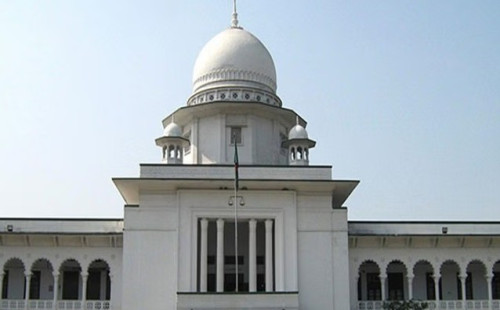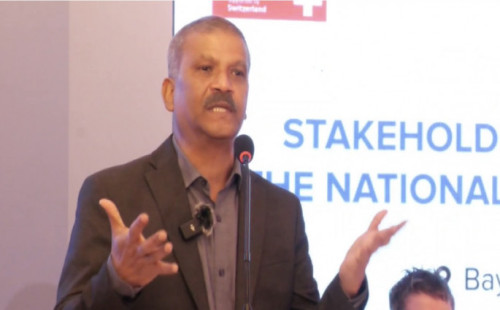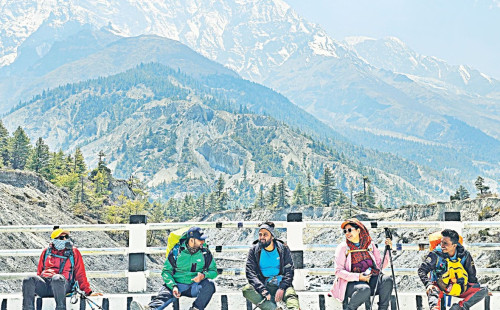Supreme Court, not president, to have authority over lower court judges: HC

The High Court today
observed that the Supreme Court, not the president, will have the powers of
control and discipline of the lower court judges from now on.
The
court restored the original provision of article 116 of the constitution of
1972 that had empowered the Supreme Court to decide on the posting, promotion
and leave of lower court judges.
The HC also directed the government to
establish a separate secretariat for the judiciary in three months.
The
bench of Justice Ahmed Sohel and Justice Debashish Roy Chowdhury delivered the
verdict following a writ petition challenging the legality of article 116 of
the constitution, which gives the powers of control and discipline of the lower
court judges to the president.
Following
the same petition, another HC bench on October 27 last year, issued the rule
questioning the legality of article 116 of the constitution.
Article
116 says, "The control (including the power of posting, promotion and
grant of leave) and discipline of persons employed in the judicial service and
magistrates exercising judicial functions shall vest in the president and shall
be exercised by him in consultation with the Supreme Court."
In
the rule, the HC asked the respondents (law secretary and SC registrar general)
to explain why the provisions of article 116 of the Constitution and the
Bangladesh Judicial Service (Disciplinary) Rules, 2017 should not be declared
contradictory to the constitution and why they should not be directed to
establish a separate judicial secretariat at SC premises.
The
HC came up with the rule following the petition filed by 10 SC lawyers in this
regard. They are Mohammad Saddam Hossen, Md Asad Uddin, Md Muzahedul Islam, Md
Zahirul Islam, Mustafizur Rahman, Shyikh Mahdi, Abdullah Sadiq, Md Mizanul
Hoque, Aminul Islam Shakil and Jayed Bin Amjad.
They also
appealed to the HC to restore the original provision of article 116 of the
charter of 1972 that had empowered the Supreme Court to decide on the posting,
promotion and leave of lower court judges.
During the
hearing on the rule, the law ministry submitted an affidavit to the bench led
by Justice Ahmed Sohel last month, saying that the state has a concrete and
prioritised policy to establish a separate judicial secretariat with full
logistic support.
"With
regard to the prayer for direction to establish a separate secretariat, the
state submits that it has no objection if separate secretariat is established
thereon and ready to assist to the same effect," the ministry said in the
affidavit.
Deputy
Attorney General Mohammad Mehedi Hasan placed the affidavit on behalf of the
law ministry opposing the writ petition.
"It
transpires from the writ petition that the petitioners miserably failed to
disclose that how Article 116 of the Constitution is inconsistent with the
basic structures and further failed to provide any concrete arguments on how
Article 116 is ultra vires the Constitution. As such, the rule is liable to be
discharged for ends of justice," according to the affidavit.
Earlier,
Attorney General Md Asaduzzaman and Intervener Advocate Ahsanul Karim placed
arguments before the HC, saying that article 116 of the constitution has also
ensured the check and balance among the state organs, as the law ministry
cannot transfer a single judge or give any posting to any judge without
permission from the SC.
Meanwhile,
Dr Sharif Bhuiyan, amicus curiae (friend of court), and writ petitioners'
lawyer Mohammad Shishir Manir told the court that the article 116 has destroyed
the independence and separation of the judiciary which are the fundamental
structure of the constitution.
















